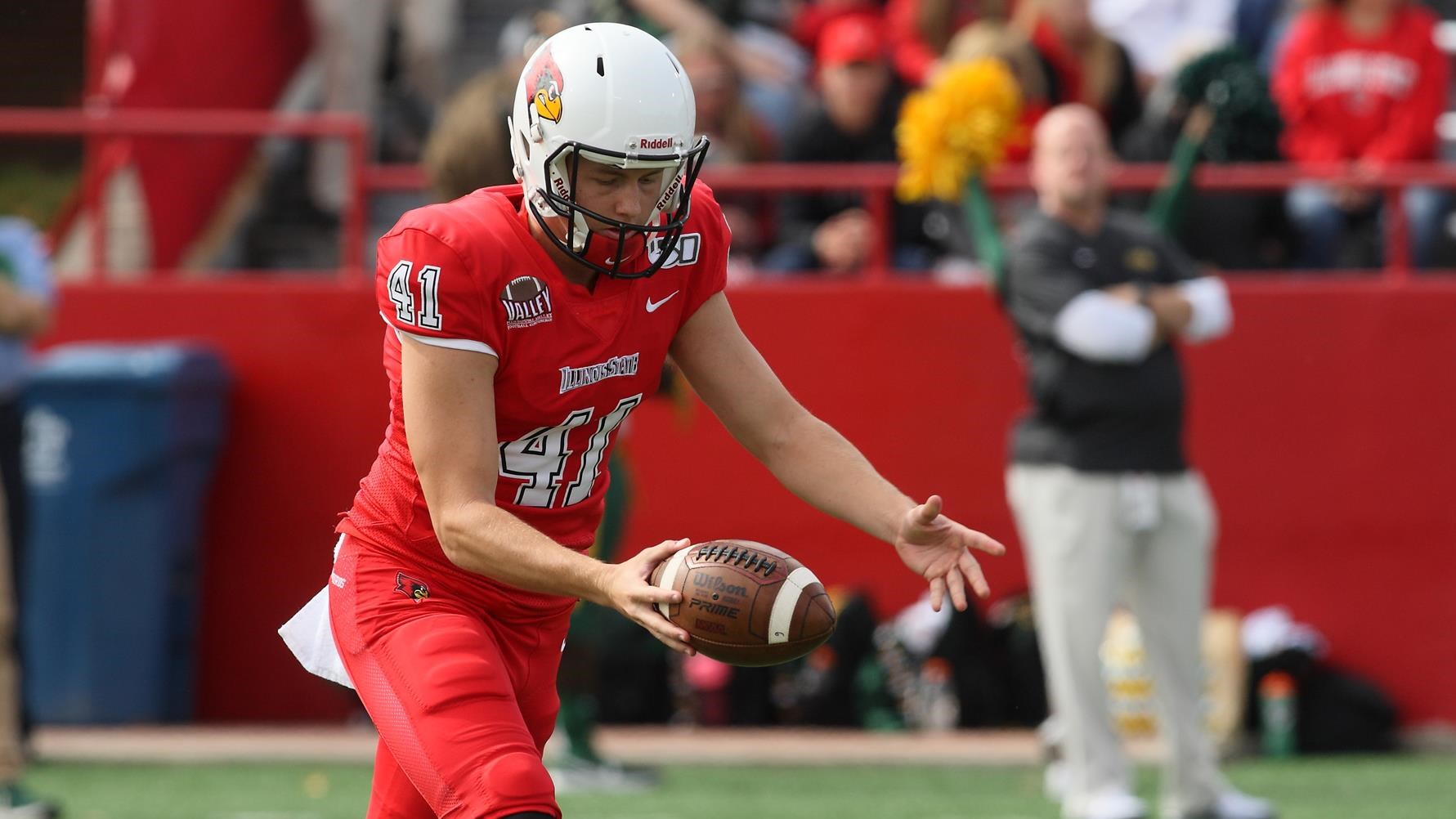OPINION: Like Everything Else The NCAA’s Done In the Past Decade, They Punt On Their New Constitution
This Thursday, in unveiling their new constitution, the NCAA did the only thing it knows how to do – punt.
Sure, the official talk this week was that they “voted to ratify a new, pared-down [NCAA] constitution Thursday, paving the way for a decentralized approach to governing college sports that will hand more power to schools and conferences,” according to the AP summary on what happened this week in Indianapolis.
Mark Emmert, ostensibly the president of the NCAA, called it more of a “declaration of independence” that will allow each of the association’s three divisions to govern itself.
In other words – the task of managing the thorny issues of collegiate athletics had become too hard, apparently, for the NCAA. So Emmert punted.
It is often said that the collegiate sports mostly reflect the politics and society of their times. In an American world where nothing is settled between where states’ rights end and federal laws begin, the problems of intercollegiate sports reflect these societal rifts perfectly.
What does it mean to be an employee? Are athletes employees, students, or something not quite one or the other? What is better, 50 different definitions and rules to determine this, or one?
How should athletes be compensated for their own works, and/or their name, image and likeness, and under what circumstances? What should be legal, and what should be illegal? What is better, 50 different state rulebooks to sift through, or one?
What rules should dictate athletes transferring from one school to the other? Should it be what it is now, which is a simple public declaration made any time, any place, anywhere? Should there be rules against coaches and assistant coaches actively trolling the All-Conference teams of low- and mid-major conferences and dangling special benefits to recruits to have them transfer to State U? Should there be 50 rulebooks on this matter, or one?
Repeatedly the answer from the most powerful schools and conferences has been: “We need more power to set the rules, then all of these thorny issues will be solved.” And then the NCAA did what it’s done best – it punted the ball to the Power conferences.
(Remember how the NCAA membership genuflected when they said offering “full cost of attendance” would solve all these problems, and by giving the most powerful conferences more power this would happen?)
Punting the ball to conferences and schools will do nothing to solve the entrenched issues that plague college sports, because the problems are national in scope. Any sporting rules and recruiting rules have to be national to have any meaning. You can’t say a football field is 100 yards in Delaware and 110 yards in Maine, or that porn and gambling money is OK for NIL in Nevada, but isn’t OK in Alabama. At some point, the whole thing breaks down into chaos.
And again, with the NCAA ceding the power to the conferences, it is merely putting the hot potato in the hands of the conferences. I seriously doubt the SEC, Big 10, or Pac 12 have any better ideas on how to police and implement NIL than the NCAA. What are they going to do, police themselves?
For all of their faults, the NCAA does have some apparatus to enforce their rules and detect violations. If it’s up to the conferences, their incentive will always be to look the other way and keep the money flowing into their McMansions. What is the incentive to blow the whistle on their own membership?
That is why all roads to an end to this chaos end in Congress.
Ultimately the conferences will learn that navigating multiple state rulebooks for arcane labor laws will require a brand-new team of lawyers they now have to hire, which will do battle with the new teams of sports agents that have entered the yawning breach of NIL laws. And they won’t be able to punt it back to the NCAA, because there will be nobody there to receive the punt.
At some level, conference will now have to police transfers, inter-conference and intra-conference. Someone’s going to get pissed, and demand vengeance or retribution. And those bruised egos are going to prevent some competitions from happening. In football, it might impact bowls, or maybe even the FBS Playoff itself. The NCAA, who doesn’t manage bowls or the FBS Playoff, will do another thing it does best – namely, nothing.
And something, somewhere, is going to break the system. Perhaps it’s a rogue program that simply flaunts the rules. Maybe it’s a labor law passed in Michigan, making Michigan and Michigan State athletes employees. Or maybe a collegiate athlete will get paid to be a Pepsi spokesperson when the CEO of Coca-Cola is on the school’s Board of Trustees. Either way, it won’t take much, and the NCAA won’t get involved, because that’s what the NCAA has become at this point.
But the problems of collegiate athletics are not solvable in statehouses. They are national in scope and require national enforcement and a national solution. They won’t be solved by punting it to conferences and schools – meaning the NCAA is going to be making things worse before things get better. If they get better.

Chuck has been writing about Lehigh football since the dawn of the internet, or perhaps it only seems like it. He’s executive editor of the College Sports Journal and has also written a book, The Rivalry: How Two Schools Started the Most Played College Football Series.
Reach him at: this email or click below:

